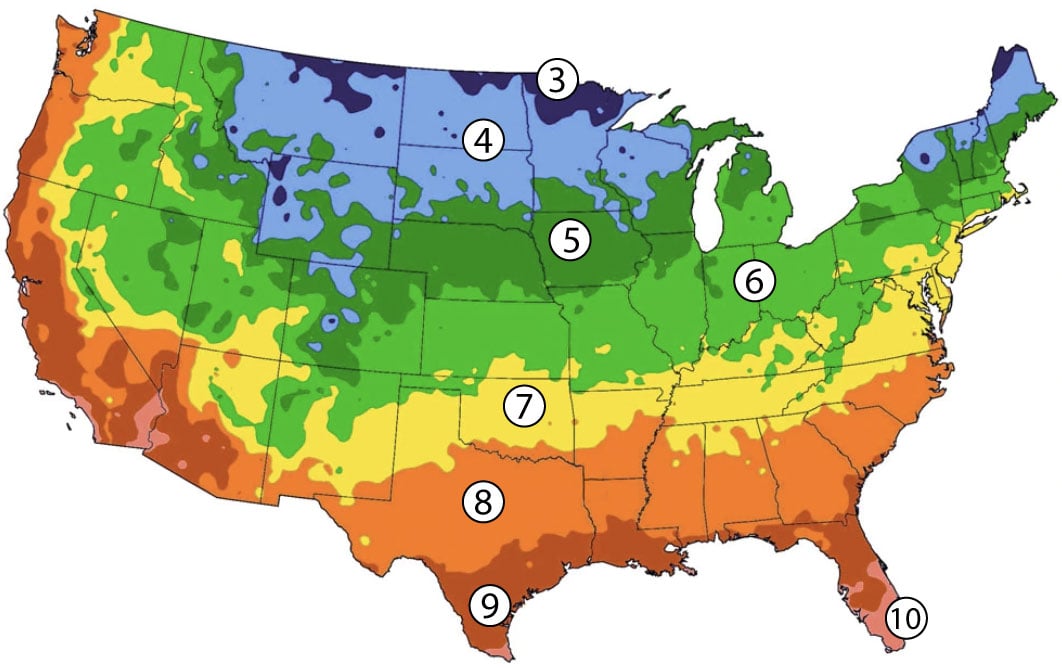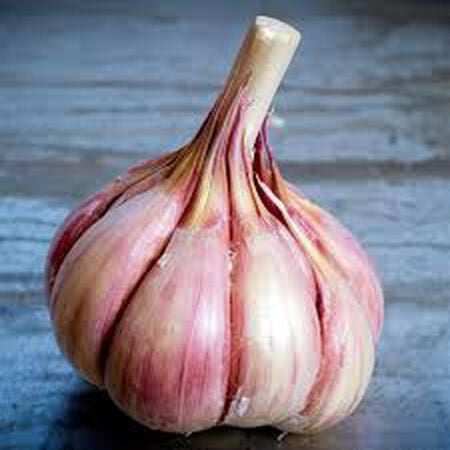Persian Star, Garlic Bulbs
Out of Stock
Key Attributes
Key Attributes
Product Details
Plant Height
18-24"Botanical Name
Allium sativumSeed Type
BulbsGarlic Hardneck Type
Purple StripeRow Spacing
18"Sow Depth
3"Breed
Open-pollinatedGarlic Type
HardneckSun
Full SunTypes
Purple Stripe GarlicLife Cycle
AnnualSow Method
Direct SowPlant Spacing
4-6"Categories
GarlicGermination
11,12,13,14,15,16,17,18,19,20,10Days To Maturity (# Days)
270Heirloom
HeirloomSeeds Per Acre
1,200 -1,600 lbsComponents
Growing Instructions
![]() Learning Download: How to Grow Garlic
Learning Download: How to Grow Garlic
Garlic naturally repels pests from the garden and can be used for its bulbs or the scapes, or green fronds, the bulbs produce. Scapes can be eaten fresh or used in various dishes.
Before Planting: Garlic in most cases should be planted right before your first frost date in the fall. For more Southern states that are in zones 8-10, garlic should be planted in early December. Prepare garlic for planting by breaking apart all cloves from the garlic. Be careful to leave the outer skin attached. Soak cloves in a jar of water for 2 hours prior to planting. If you have some seaweed fertilizer laying around add some of this to the water. This will help prevent fungal disease.
Planting: Plant garlic in a rich, well drained soil that is weed-free. Dig a hole 2″ deep and place soaked garlic clove in hole with the flat end facing down (pointy end up). Cover with soil and add an organic fertilizer on top. Space cloves 4-6″ apart in same row and rows 18-24″ apart. For best results cover soil with 6-8″ of straw. In a couple months you will see shoots poking through. During the winter months growth will stop. When spring arrives growth will resume.
Watering: Water every 3 to 5 days during bulbing.
Fertilizer: Garlic requires adequate nitrogen, so fertilize accordingly. Blood meal is a good source of high-nitrogen fertilizer. Once you begin fertilization, fertilize the garlic every three weeks.
Days to Maturity: Garlic can take up to 210 days to mature.
Harvesting: Harvest garlic when green leaves have turned brown and fallen over. Be sure to dig deep and under garlic to not break or cut the garlic itself. Upon harvesting garlic will store best with leaves braided and hung in a dark, cool cellar.
Tips: Garlic repels pests from the garden, so it doesn’t have much trouble with them.
Shipping Schedule
Garlic seed will ship at the appropriate time for your planting zone. The chart below estimates when your garlic seed will arrive. You will receive an email notifying you when your garlic ship giving you a few days to prepare for planting.
This item’s size, weight, or shape may require an additional shipping surcharge based on the shipping location selected. Specific charges will be displayed during checkout. We are unable to take specific shipping dates at this time.
*This product is perishable and does not ship outside the United States.
|
 |
Our Seed Promise
 "Agriculture and seeds" provide the basis upon which our lives depend. We must protect this foundation as a safe and genetically stable source for future generations. For the benefit of all farmers, gardeners and consumers who want an alternative, we pledge that we do not knowingly buy or sell genetically engineered seeds or plants.
"Agriculture and seeds" provide the basis upon which our lives depend. We must protect this foundation as a safe and genetically stable source for future generations. For the benefit of all farmers, gardeners and consumers who want an alternative, we pledge that we do not knowingly buy or sell genetically engineered seeds or plants.
The mechanical transfer of genetic material outside of natural reproductive methods and between genera, families or kingdoms, poses great biological risks as well as economic, political, and cultural threats. We feel that genetically engineered varieties have been insufficiently tested prior to public release. More research and testing is necessary to further assess the potential risks of genetically engineered seeds. Further, we wish to support agricultural progress that leads to healthier soils, to genetically diverse agricultural ecosystems, and ultimately to healthy people and communities.
To learn more about the "Safe Seed Pledge" please visit www.councilforresponsiblegenetics.org.

